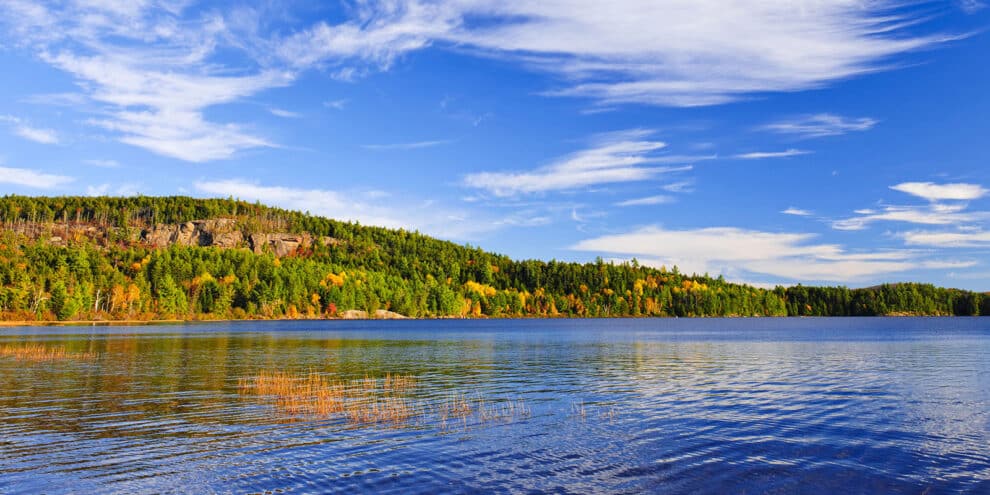Editor’s Note: This is the ninth in a question-and-answer series with land real estate professionals — land agents, mortgage brokers, auctioneers, attorneys, timberland professionals and more. There’s a lot of information about the national real estate market out there, but it’s tough to find answers to your specific land real estate questions — until now. LANDTHINK believes that a lot of the stress of buying, selling, and owning land can be reduced or eliminated with some simple information from some of the best in the land industry.
Landbuyer Question:
I’m interested in buying a 47 acre parcel of land in Illinois that has no legal road access and no established easement in place to reach the property, however there is water access via a rather small river, that is probably best navigated by a kayak or a small jon boat. I’m wondering if this would restrict my ability to establish an easement by court to access the property by vehicle. Does a landlocked parcel with access from the water qualify for an easement by necessity in Illinois? What are some of my options? Thank you in advance, and I appreciate any input you can provide.
James P. Moorhead, Founder and Principal, Moorhead Law Group, LLC, Attorneys and Counselors at Law, Lake Forest, IL
Unfortunately, the Illinois law on this subject does not appear robust. In Illinois, a property that is only accessible by navigable water may not qualify for an easement by necessity over another’s land.
Easement by necessity is a specific legal doctrine that allows a landlocked parcel to gain access to a public road through another property, but the easement is permitted only under specific conditions in Illinois. An easement by necessity in Illinois generally must have the following conditions: (a) the landlocked and adjacent properties were once part of a single parcel, (b) the parcel split into two (or more) parcels, which caused the access issue, and (c) no other practical or legal access exists.
Illinois courts focus on the “necessity” requirement and can be strict. If the property can be accessed by water, even if not convenient, this may not pass the “no other access exists” criteria.
Other practical things to consider are a private easement, a prescriptive easement, or an implied easement.
The best next step for this issue is to consult a local attorney with experience in water and real estate law.
Do you have a specific land real estate question for one of our professionals? Submit your question and we might choose yours!
This content may not be used or reproduced in any manner whatsoever, in part or in whole, without written permission of LANDTHINK. Use of this content without permission is a violation of federal copyright law. The articles, posts, comments, opinions and information provided by LANDTHINK are for informational and research purposes only and DOES NOT substitute or coincide with the advice of an attorney, accountant, real estate broker or any other licensed real estate professional. LANDTHINK strongly advises visitors and readers to seek their own professional guidance and advice related to buying, investing in or selling real estate.










Add Comment